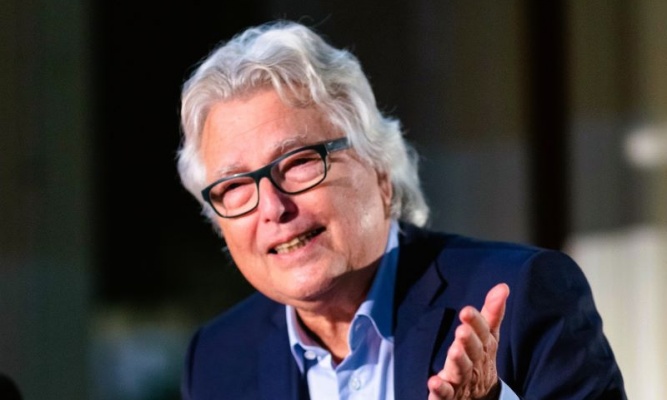Carney and Trudeau: Ideological twins from the same father - By Endrit Mullisi
- Published in English/French

In the evolving landscape of Canadian politics, recent developments have only reinforced my observation: Justin Trudeau and Mark Carney are not just political allies (there is no past-present-future in them) - they are ideological twins, shaped by the same ideological father. While Trudeau has stepped down as leader of the Liberal Party and is no longer Prime Minister, Mark Carney has taken up his mantle. He says that is different than Trudeau but has never dared to criticize the previous government - most of Trudeau ministers are his ministers. This weekend, he is seeking through a federal election the clear mandate to continue - and even deepen - the legacy Trudeau began.
This political handoff is not merely one of succession - it is one of ideological continuity. The baton is being passed not to a new runner with a different strategy, but to someone who has been running in parallel all along. Carney's ascent to power signals that the vision cast by Trudeau is far from over. It is being renewed, repackaged, and reasserted under the steady hand of a global technocrat who shares not only Trudeau's worldview, but arguably helped shape it from behind the scenes.
Trudeau built his political persona on a “progressive” vision for Canada - championing climate action, social inclusion, and a post-national identity. His governance leaned heavily on the machinery of state bureaucracy and international consensus. Carney, for his part, has long operated within the circles that supply the ideological framework for such policies - international financial institutions, climate forums, and elite gatherings such as the World Economic Forum.
Now, with Carney at the helm of both the Liberal Party and the country, we see the ideology not replaced, but reinforced.
Carney’s career as a central banker and global financial leader has been marked by a constant theme: the need to inject “morality” into capitalism through expert-driven governance. In his writings and speeches, Carney has called for a redefinition of economic value to prioritize sustainability, equity, and long-term social good - ideals that dovetail perfectly with Trudeau’s political messaging, but now with even greater precision and technocratic polish. He is thinking for the future generations, but ready to sacrifice part of the current.
This election, then, is not just about leadership - it’s about direction. Carney isn’t seeking to chart a new course, but to solidify and systematize what Trudeau began: a centralized, controlling, globally-aligned vision for Canada’s future.
Both Trudeau and Carney derive their ideological DNA from a shared source: a globalist-progressive philosophy that sees national borders as increasingly irrelevant, tradition as something to be refined or reimagined, and democracy as a vehicle not merely for representation, but for transformation. This worldview is heavily shaped by international think tanks, climate policy boards, and financial institutions where decisions are often made without electoral accountability.
Trudeau’s comment years ago that Canada is the “first post-national state” was not an offhand remark - it was a guiding principle. Carney’s active role in promoting a “just transition” toward a greener economy, suggest the same foundational belief: the future should be engineered by “experts” who lead from above.
As voters head to the polls this weekend, they are not simply being asked to choose between political platforms. They are being asked to confirm a legacy - to endorse the continuation of an ideological project that transcends any one leader, or for CHANGE.
Carney’s campaign for a clear mandate is framed not just in terms of policy but in moral urgency. The language is familiar: climate crisis, dealing with Trump and global responsibility.
In Trudeau and now in Carney, we see the embodiment of a new political archetype: the technocratic globalist with progressist clothing, the elite reformer with an international resume but with a message that they care for everyone. They are, truly, ideological twins - born of the same father, preaching the same gospel, and now, in Carney’s case, seeking the public’s blessing to carry it even further.
Do you think that your vote should continue to go Liberal?
© Endrit Mullisi - Toronto













